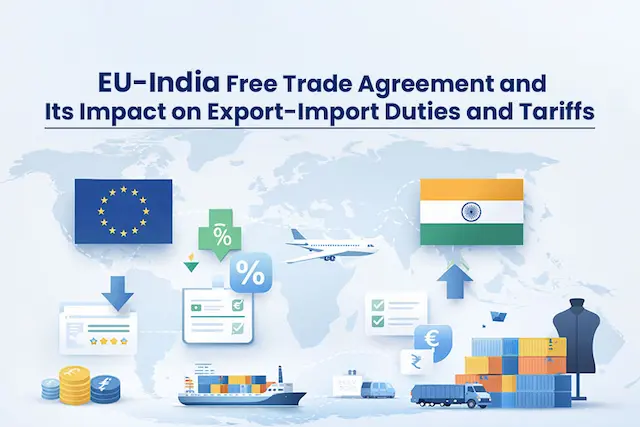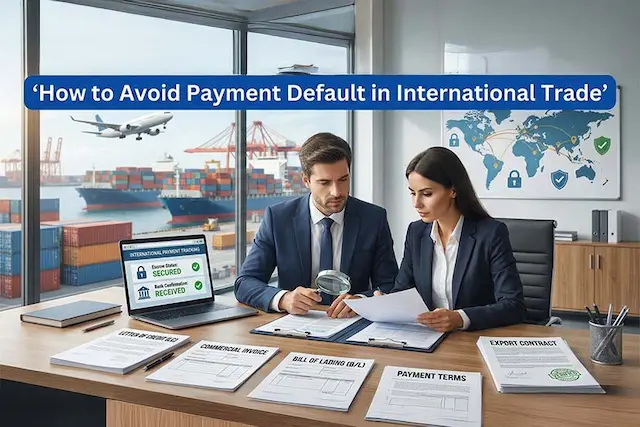International trade involves complex financial transactions, and managing cash flow is a critical aspect for businesses engaged in global commerce. In this context, export factoring services play a pivotal role in providing financial flexibility and support. Evaluating and selecting the right export factoring service is essential for businesses looking to navigate the intricacies of international transactions successfully.
Let’s explore the key factors that businesses should consider when assessing export factoring services to make informed and advantageous decisions for their financial operations.
What is Export Factoring?
Export factoring is a financial arrangement that assists businesses engaged in international trade by providing immediate cash flow for their accounts receivable. In simpler terms, it’s a service where a company sells its invoices or accounts receivable to a specialized financial institution known as a factor.
Instead of waiting for customers to pay their invoices, the business gets a significant portion of the invoice amount upfront from the factor. The factor then assumes the responsibility of collecting payments from the customers.
Comprehensive Guide: Key Considerations in Evaluating Export Factoring Services for International Businesses
Evaluating export factoring services is crucial for businesses engaged in international trade. Here are 30 key factors to consider when assessing export factoring services:
1. Experience in Export Factoring
When picking export factoring help, choose experts with lots of experience in international deals. This shows they know the ins and outs, making sure they can help your business handle the complexities of export factoring smoothly.
2. Global Presence
When selecting a factor for your business, go for one with a global network. This means they can help with transactions in many countries. It’s like having a partner that can make things easier when your business deals with different places around the world.
3. Customer Reviews and Reputation
Before deciding on a service, check what other customers say and see how people view the provider. This helps you understand if they’re reliable and offer good service. It’s like getting advice from others to make sure you’re making a smart choice for your business.
4. Regulatory Compliance
Make sure the factor follows the rules for international trade and finance. This ensures they’re doing things the right way. It’s like making sure everyone is playing by the same rules so that your business can operate smoothly and without any problems.
5. Service Fees and Rates
Check how much it costs to use the service. Look at things like service fees and discount rates to understand how it affects your money. It’s like knowing exactly what you’re paying for so you can make sure it fits well with your business finances.
6. Advance Rates
Think about how much of the money you get right away. This is called the advance rate. Choosing a factor with a good advance rate means you get more money upfront, helping your business with its cash flow. It’s like getting a fair amount of your money early on.
7. Credit Limits
See if the factor sets limits on how much credit they give. This helps reduce the risk if buyers don’t pay. It’s like having a safety measure to make sure your business doesn’t face too much trouble if something goes wrong with the payments from your customers.
8. Credit Protection
Check if the factor gives you insurance for cases when customers don’t pay. This protection is like a safety net, making sure your business doesn’t face big losses if something goes wrong with payments. It’s a smart move to keep your finances secure and worry less about non-payment risks.
9. Recourse vs. Non-Recourse Factoring
Know the two types: recourse and non-recourse factoring. Recourse means you’re responsible if customers don’t pay, while non-recourse means the factor takes that risk. Choose based on how much risk your business can handle. It’s like picking the safety level that feels right for your business.
10. Contract Terms
Read the agreement details, especially how long it lasts. This is called the contract duration. Understand all the terms and conditions so you know what you’re agreeing to. It’s like reading the rules of a game before you play, making sure everything is clear and fair for your business.
11. Notification and Non-Notification Factoring
Choose how you want the factor to work with your customers. If you pick notification (disclosure), your customers will know about the factor. If you choose non-notification (confidential), it’s kept a secret. Decide what feels right for your business, like choosing how much to share about your financial arrangements.
12. Flexibility
Select a factor that can change the financing plan as your business needs. This flexibility is like having a service that adjusts to what works best for you. It helps your business adapt and keeps things smooth even if your financial needs change along the way.
13. Multi-Currency Support
Make sure the factor can handle money in different currencies if your business works with clients from different countries. This support is like having a tool that understands and manages money in various forms, making it easier for your business to deal with international transactions smoothly.
14. Technology and Automation
Choose factors that use technology to make things efficient and smooth. This is like having a helper that uses smart tools to get things done faster and better. It makes the whole process easier for your business, like having the latest tools to make your work simpler.
15. Reporting and Transparency
Check how well the factor shows you what’s happening with your money. This transparency is like having a clear window into your financial transactions. It helps you understand everything easily and makes sure you know exactly what’s going on with your business funds.
16. Customer Support
Check how much help the factor gives you. Good customer support is like having a friend ready to assist. Make sure they’re available, even if you’re in different time zones. It’s like having a reliable buddy to turn to whenever you need help or have questions about the service.
17. Industry Specialization
Think about choosing a factor that knows a lot about your type of business. This specialization is like having a partner who understands the ins and outs of what you do. It makes everything smoother because they already know the unique things about your industry.
18. Legal Expertise
Check if the factor knows a lot about the laws and rules for international trade. This legal expertise is like having a guide who understands the road you’re on. It ensures your business follows all the right laws and regulations, helping you avoid problems when dealing with international transactions.
19. Payment Terms
Know how the factor pays you and how fast you get the money. Payment terms are like the rules for when you get your earnings. Understanding this helps you plan better for your business. It’s like having a clear schedule for when you can expect your money.
20. Collections Process
Look at how the factor collects money and how good they are at getting payments. This collection process is like having a team that makes sure you get the money you’re owed. It’s an important part of the service, making sure your business doesn’t face issues with late or missing payments.
21. Dispute Resolution
Make sure the factor has a plan for fixing problems if there are disagreements. Dispute resolution is like having a referee in a game. It helps solve issues so that everything runs smoothly. This ensures your business doesn’t face any interruptions in getting the funds it needs.
22. Client Reference
Ask the factor for contacts of other businesses they’ve helped. Talking to these references is like getting reviews from friends before trying something new. It helps you understand how well the factor works with other businesses and if they have a good track record of helping people like you.
23. Scalability
Pick a factor that can grow with your business. Scalability is like having a service that can stretch or shrink to fit your needs. It ensures that as your business gets bigger, the factor can still provide the support you need. It’s like having a partner that grows with you.
24. Accessibility of Funds
Check how fast you can get your money after everything is confirmed. Accessibility of funds is like knowing when you can reach your piggy bank. It helps you plan and ensures that your business has quick access to the funds it needs without unnecessary delays.
25. Credit Risk Assessment
Know how the factor decides if your customers are good at paying. Credit risk assessment is like the factor checking if your customers are trustworthy. Understanding this helps your business avoid potential problems with customers who might have trouble paying on time. It’s like having a safety check for your finances.
26. Integration with Accounting Systems
See if the factor’s tools can work well with your money management system. Integration with accounting systems is like making sure two friends speak the same language. It ensures that the factor’s tools and your existing accounting software can understand each other easily, making financial management smoother for your business.
27. Credit Management Tools
Check if the factor gives you tools to manage how you offer credit. Credit management tools are like having a toolkit to handle money matters wisely. They help your business make smart decisions about offering credit to customers, ensuring that you balance risk and reward effectively.
28. Legal and Compliance Support
Make sure the factor helps with laws and following the rules, especially in global deals. Legal and compliance support is like having a guide who knows the road signs in different countries. It ensures your business stays on the right path and follows all the rules, preventing any legal issues in international transactions.
29. Education and Training
Choose a factor that helps you learn more about export factoring. Education and training are like having a coach to teach you the game. It ensures you understand how everything works, making you more confident in using the service for your business. It’s like having a reliable teacher for your financial game plan.
30. Exit Strategies
Know how to finish the deal if needed. Exit strategies are like having an emergency exit plan. Understanding this helps you leave the arrangement without any problems. It ensures a smooth ending, just like having a clear path to leave if things don’t work out as planned for your business.
Supercharge Your Exports with Credlix: Effortless Funding for Business Expansion
Credlix streamlines the export journey for businesses, providing vital funds to simplify operations. Our support empowers you to enhance your export capacity and fulfill a greater number of buyer orders. Enjoy the simplicity of our solutions, which include invoice discounting and purchase order financing, all without the requirement for collateral. It’s that simple.
Final Words
Selecting the right export factoring service is pivotal for businesses navigating the complexities of international trade. These 30 key factors provide a comprehensive guide, ensuring businesses make informed decisions. From the expertise of the factor to considerations like global presence, customer support, and legal compliance, each factor plays a crucial role in facilitating seamless international transactions.
As businesses strive for financial flexibility and support, a well-evaluated export factoring service becomes a strategic ally. By understanding and prioritizing these factors, businesses can confidently choose a partner that aligns with their unique needs, fostering growth and success in the global market.
Also Read: What’s the Difference Between Invoice Discounting and Invoice Factoring?




